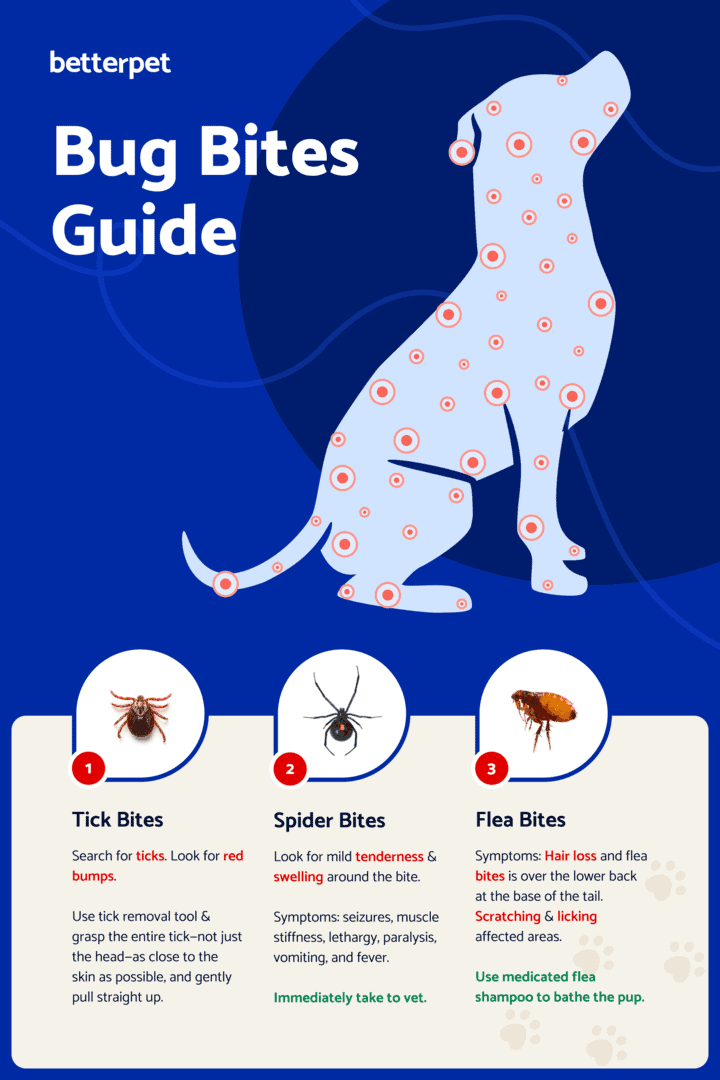Black Fly Bites on Dogs
- K9 Repro Team
- Jun 5, 2024
- 3 min read
Flies can be a nuisance, but black flies, in particular, can cause significant trouble for our canine companions. Black fly bites on dogs can lead to extreme itchiness, pain, and sometimes severe allergic reactions. Knowing what to look for and how to treat these bites is essential for your dog's comfort and health.
What Are Black Fly Bites on Dogs?
Black flies, also known as buffalo gnats, are small, winged insects with black, gray, or yellowish-brown bodies. They are especially active during the humid spring and summer months. Female black flies are aggressive biters, cutting the skin to drink the blood that pools. Male black flies, however, do not bite.
During black fly season, swarms of these flies can bite dogs, causing small, itchy, bloody spots on the body, especially on the underside, inner thighs, ears, and face. These swarms usually occur during the daytime when the air is calm.
What Do Black Fly Bites Look Like on Dogs?
Black fly bites on dogs are typically found in areas with less fur, such as the abdomen, inner thighs, or ears. These bites can be extremely itchy and may cause scabbing, open sores, or dark red bumps. Dogs often develop a specific rash on their underside and inner thighs from black fly bites, characterized by a bullseye or target-like structure: a pinpoint puncture surrounded by a paler area of swelling and a red outer rim.
Difference Between Black Fly Bite and Tick Bite on Dogs
Black fly bites and tick bites can be confusing due to their appearance. However, unlike tick bites, which are usually solitary and involve the tick latching onto the dog, black fly bites are often found in clusters. Black flies bite, feed, and fly away, whereas ticks remain attached while feeding.
Both types of bites can be itchy, but ticks carry diseases like Lyme disease or ehrlichiosis, while black flies do not transmit diseases to dogs.
Infected Black Fly Bite on Dogs
Any insect bite can get infected if a dog scratches or chews at it, including black fly bites. Signs of infection include drainage or pus (white, yellow, green, or brown fluid), increased swelling, pain, and slow healing. If you suspect an infected bite, consult your veterinarian, who may prescribe antibiotics.
Treatment of Black Fly Bites on Dogs
Treatment focuses on relieving itchiness and discomfort, promoting healing, and preventing infection. If your dog isn't excessively itchy or in pain, these bites usually heal without veterinary attention. Keep your pet from scratching or chewing by using a recovery cone or protective clothing.
At-home treatments include:
Cold Compress: Apply an ice pack wrapped in a cloth to the bites.
Hydrocortisone Cream: Apply directly to the bites to reduce itchiness.
If your dog is excessively itchy, contact your veterinarian. They may recommend over-the-counter antihistamines like diphenhydramine (Benadryl®) or cetirizine (Zyrtec®). Follow your vet’s dosing recommendations. For infected bites, antibiotics may be prescribed.
In rare cases of severe allergic reactions, seek emergency treatment immediately. Do not use an EpiPen prescribed for humans on your pet.
How to Protect Your Dog from Black Fly Bites
Preventative measures include:
Avoiding running water areas like rivers and streams during black fly season.
Avoiding woodlands and farms during black fly season.
Keeping your dog indoors during peak black fly activity times (morning and late afternoon/evening).
Using protective clothing to cover the dog’s underbelly and thighs.
Applying SWAT® fly repellent on your dog’s ears.
No DEET-containing bug sprays are FDA-approved for use in dogs. Over-the-counter bug sprays meant for dogs can be used, but avoiding swarms is the most effective prevention.
Black Fly Bite on Dogs FAQs
Do black fly bites hurt dogs? Yes, black fly bites are painful. However, dogs vary in their sensitivity to these bites.
Do black fly bites on dogs heal on their own? Black fly bites often heal on their own and may not need veterinary attention. Prevent your pet from scratching or chewing the bites. Seek veterinary care if you’re concerned about allergic reactions, infection, or if the bites aren’t healing.
For more tips and resources, visit K9Reproduction.com.


Comments